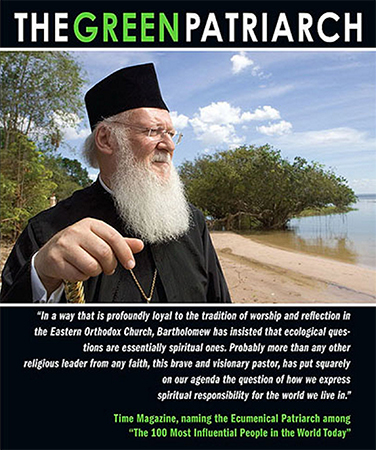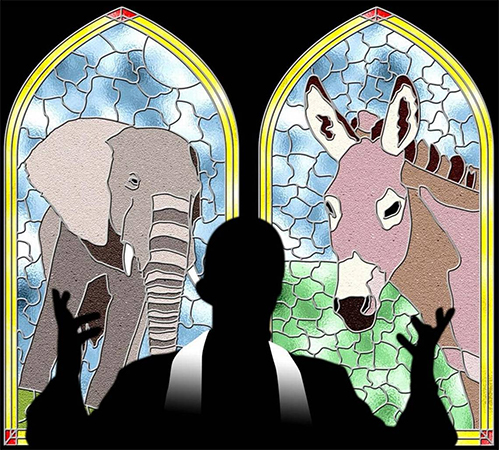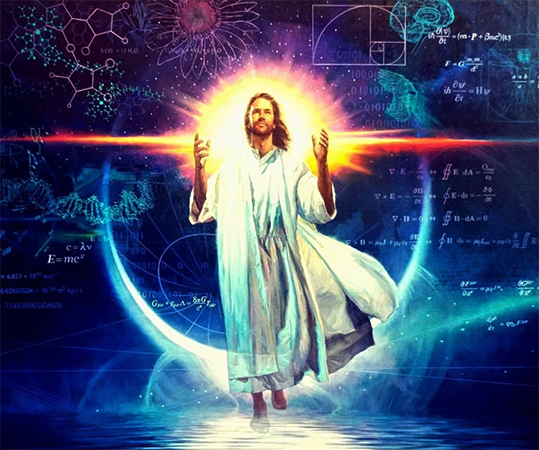The Lausanne Covenant
An Evangelical Expression of Faith

|
3. The Uniqueness and Universality of Christ
We affirm that there is only one Saviour and only one gospel,
although there is a wide diversity of evangelistic approaches. We
recognise that everyone has some knowledge of God through his general
revelation in nature. But we deny that this can save, for people
suppress the truth by their unrighteousness. We also reject as
derogatory to Christ and the gospel every kind of syncretism and
dialogue which implies that Christ speaks equally through all religions
and ideologies. Jesus Christ, being himself the only God-man, who gave
himself as the only ransom for sinners, is the only mediator between God
and people. There is no other name by which we must be saved. All men
and women are perishing because of sin, but God loves everyone, not
wishing that any should perish but that all should repent. Yet those who
reject Christ repudiate the joy of salvation and condemn themselves to
eternal separation from God. To proclaim Jesus as “the Saviour of the
world” is not to affirm that all people are either automatically or
ultimately saved, still less to affirm that all religions offer
salvation in Christ. Rather it is to proclaim God’s love for a world of
sinners and to invite everyone to respond to him as Saviour and Lord in
the wholehearted personal commitment of repentance and faith. Jesus
Christ has been exalted above every other name; we long for the day when
every knee shall bow to him and every tongue shall confess him Lord. (Lausanne.org...) |

Does God only save those who identify as Christians ...
and if so, why do "good" people deserve eternal damnation?

|
I was recently speaking with another Christian about whether
non-Christians can go to heaven. She said that the only way someone can
go to heaven is through Jesus Christ. I believe an all-loving God would
not deny heaven to those who do not know Jesus Christ. Jews and Muslims
love God the Father. Also, some people have never been exposed to
Christianity. What can I say to her?
Whoever is in heaven is indeed there because of the saving passion,
death, and resurrection of Jesus Christ. That does not mean, however,
that everyone in heaven had an explicit faith in Jesus before arriving
there or was even baptized.
The saying “Outside the Church there is no salvation” is credited to
St. Cyprian (third century). More than 150 years later, St. Augustine
wrote that the Church has some people whom God does not have, and God
has some people whom the Church does not have. ...
According to Vatican II’s “Pastoral Constitution on the Church in the
Modern World,” Christians have been configured to the death of Christ
but go forward in hope to the resurrection. The text immediately adds:
“All this holds true not only for Christians but also for all people of
good will in whose hearts grace is active invisibly. For since Christ
died for everyone, and since all are in fact called to one and the same
destiny, which is divine, we must hold that the Holy Spirit offers to
all the possibility of being made partners, in a way known to God, in
the paschal mystery” (22).
God’s judgment must remain God’s judgment! No one can replace God’s judgment with human judgment. (Ask a Franciscan)
|

 |
What are the scriptural foundations for the "exclusivist" and "inclusivist" positions?
How can one know which position is correct?
|

Although
many Christians make a distinction between the sacred and the secular,
some have involved themselves deeply with social issues as an
expression of their Christian faith. For instance, the Baptist
preacher, Martin Luther King, Jr. (1929-1968), became a great civil
rights leader. This
trend is now called liberation theology,
a faith that stresses the need for concrete political action to help
the poor. Beginning in the 1960s with Vatican II and the conference of
Latin American bishops in Columbia in 1968, Roman Catholic priests and
nuns in Latin America began to make conscious, voluntary efforts to
understand and side with the poor in their struggles for social
justice. ...
32 All the
believers were one in heart and mind. No one claimed that any of their
possessions was their own, but they shared everything they had.33 With
great power the apostles continued to testify to the resurrection of
the Lord Jesus. And God’s grace was so powerfully at work in them all34 that
there were no needy persons among them.
For from time to time those who
owned land or houses sold them, brought the money from the sales 35 and put it at the apostles’ feet, and it was distributed to anyone who had need. (Acts 4: 32-35)
|
For
their
sympathetic siding with those who are oppressed, Catholic clergy have
been murdered by political authorities in some countries.
They have also been strongly criticized by conservatives within the
Vatican. The movement has nevertheless spread to all areas where there
is social injustice. Bakole Wa Ilunga, Archbishop of Kananga, the
Democratic Republic of Congo (formerly Zaire), reminds Christians that
Jesus warned the rich and powerful that it would be very difficult for
them to enter the kingdom of Heaven. By contrast, writes Ilunga:
| Jesus
liberates the poor from the feeling that they are somehow less than
fully human; he makes them aware of their dignity and gives them
motives for struggling against their lot and for taking control of
their own lives. (Living Religions, 362-3) |
Are Christians obligated to be actively engaged in the establishment of social justice?
If not, what role should ethics play in a Christian life?
|


|
 |
 Throughout his
tenure as Patriarch, Bartholomew I has made environmental protection
his crusade. ... During a tour of the United States ... he made a historic
speech at a symposium on religion, science, and the environment in
Santa Barbara, California. “To commit a crime against the natural
world is a sin,” the Patriarch told the audience of eight
hundred. “For humans to cause species to become extinct and to
destroy the biological diversity of God’s creation; for humans to
degrade the integrity of the earth by causing changes in its climate,
by stripping the earth of its natural forests, or destroying its
wetlands; for humans to contaminate the earth’s waters, its land,
its air, and its life with poisonous substances — these are
sins. ... The Orthodox believe that bread and wine acquire
personal characteristics by being made the body and the blood of
Christ, and so creation is sanctified and affirmed as being ‘very
good.’ The central concern of Orthodoxy is to enact through the
Eucharist this new mode of being in which death ceases to exist.
Precisely because creation is ‘very good’ it is worth
preserving.” ... Each of us has an obligation to God, who
“placed the newly created human ‘in the Garden of Eden to
cultivate it and to guard it’” (Genesis 2:15). He imposed
on humanity a stewardship role in relationship to the earth. (An Anthology of Living Religions,
253-4) Throughout his
tenure as Patriarch, Bartholomew I has made environmental protection
his crusade. ... During a tour of the United States ... he made a historic
speech at a symposium on religion, science, and the environment in
Santa Barbara, California. “To commit a crime against the natural
world is a sin,” the Patriarch told the audience of eight
hundred. “For humans to cause species to become extinct and to
destroy the biological diversity of God’s creation; for humans to
degrade the integrity of the earth by causing changes in its climate,
by stripping the earth of its natural forests, or destroying its
wetlands; for humans to contaminate the earth’s waters, its land,
its air, and its life with poisonous substances — these are
sins. ... The Orthodox believe that bread and wine acquire
personal characteristics by being made the body and the blood of
Christ, and so creation is sanctified and affirmed as being ‘very
good.’ The central concern of Orthodoxy is to enact through the
Eucharist this new mode of being in which death ceases to exist.
Precisely because creation is ‘very good’ it is worth
preserving.” ... Each of us has an obligation to God, who
“placed the newly created human ‘in the Garden of Eden to
cultivate it and to guard it’” (Genesis 2:15). He imposed
on humanity a stewardship role in relationship to the earth. (An Anthology of Living Religions,
253-4)
28 Then
God blessed [the humans] and said, “Be fruitful and multiply. Fill the earth
and govern it. Reign over the fish in the sea, the birds in the sky, and
all the animals that scurry along the ground.” 29 Then God said, “Look! I have given you every seed-bearing plant throughout the earth and all the fruit trees for your food. 30 And
I have given every green plant as food for all the wild animals, the
birds in the sky, and the small animals that scurry along the
ground — everything that has life.” ... 31 Then God looked over all he had made, and he saw that it was very good! (Genesis 1:28-31)
|
Do Christians have a religious obligation to act as stewards of the earth?
|


|
 |
|
Religion and Politics
Jim Wallis
Abraham Lincoln had
it right. Our task should not be to invoke religion and the name of God
by claiming God’s blessing and endorsement for all our national
policies and practices — saying, in effect, that God is on our
side. Rather, Lincoln said, we should pray and worry earnestly whether
we are on God’s side.
Those are the two ways that religion has
been brought into public life in American history. The first
way — God is on our side — leads inevitably to triumphalism,
self-righteousness, bad theology, and, often, dangerous foreign policy.
The second way — asking if we are on God’s side — leads
to much healthier things, namely, penitence and even repentance,
humility, reflection, and even accountability. We need much more of all
these, because these are often the missing values of politics. ... God is
not a Republican or a Democrat. ... God’s politics is therefore
never partisan or ideological. But it challenges everything about our
politics. God’s politics reminds us of the people our politics
always neglects — the poor, the vulnerable, the left behind.
God’s politics challenges narrow national, ethnic, economic, or
cultural self-interest, reminding us of a much wider world and the
creative human diversity of all those made in the image of the creator.
God’s politics reminds us of the creation itself, a rich
environment in which we are to be good stewards, not mere users,
consumers, and exploiters. And God’s politics pleads with us to
resolve the inevitable conflicts among us, as much as is possible,
without the terrible cost and consequences of war. God’s politics
always reminds us of the ancient prophetic prescription to
“choose life, so that you and your children may live,” and
challenges all the selective moralities that would choose one set of
lives and issues over another. (An Anthology of Living Religions, 256-8)
What's the difference between claiming that "God is on my side"
and asking "Am I on God's side"?
Would our government function better
if we did less of the former and more of the latter?
|

|




